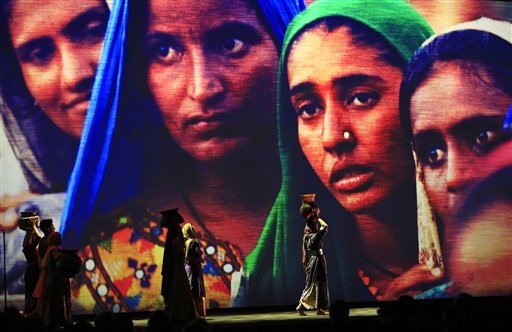Popular Reads
Top Results
Can't find what you're looking for?
View all search resultsPopular Reads
Top Results
Can't find what you're looking for?
View all search resultsAsylum seekers need public health assistance
Refugees are in a vulnerable position regardless of their age and gender. Without legal status, they are unable to access local healthcare services. Communicable diseases are one of the most significant morbidities among refugees. Overcrowding, a lack of adequate health care facilities, unavailability of health services and poor hygiene expose them to various infectious diseases. Respiratory infection, malaria and intestinal worms are the top three diseases among refugees (UNHCR, 2012). Furthermore, they often have psychological health problems due to violence, displacement and other traumatic experiences back in their home countries.
Change text size
Gift Premium Articles
to Anyone
M
ore than 40 Sri Lankans were stranded in Indonesian waters following a failure of their boat’s engine. The group of asylum seekers includes a pregnant woman and children and is in dire need of medical care to restore their physical condition after a sea voyage of more than 20 days. However, local authorities have refused to allow them ashore, as they have no passports or other supporting immigration documents.
Indonesia is not a signatory to the 1951 Refugee Convention and therefore has no obligation to abide by it. However, since Indonesia is surrounded by destination countries for the flow of asylum seekers, such as Malaysia and Australia, it is inevitably a transit country. The UN refugee agency (UNHCR) has recorded an increasing number of refugees and asylum seekers arriving in Indonesia, from 385 people in 2008 to more than 13,000 in 2015. Most of them came from Afghanistan, Myanmar, Sri Lanka, Pakistan, Iran and Iraq.
Refugees are in a vulnerable position regardless of their age and gender. Without legal status, they are unable to access local healthcare services. Communicable diseases are one of the most significant morbidities among refugees. Overcrowding, a lack of adequate health care facilities, unavailability of health services and poor hygiene expose them to various infectious diseases. Respiratory infection, malaria and intestinal worms are the top three diseases among refugees (UNHCR, 2012 ). Furthermore, they often have psychological health problems due to violence, displacement and other traumatic experiences back in their home countries.
Arriving in a new environment, they face many challenges because of the cultural and linguistic differences. In Indonesia, they are banned from working and are only allowed to stay in temporary detention facilities while waiting for approval of their refugee status applications.
Human Rights Watch (HRW) has reported overcapacity in many centers, besides a lack of hygiene and poor sanitation facilities. Moreover, refugees are at risk of violence while staying in the centers. These conditions make them more susceptible to communicable diseases and mental health problems.
International human rights law has long declared that everyone has the right to the highest attainable standard of physical and mental health, and this includes refugees and asylum seekers. The 1951 Refugee Convention also states that refugees should enjoy access to health services equivalent to that of the host population.
The UNHCR recommends proper monitoring of refugees' health and encourages host countries to improve refugees’ access to health care. However, no regulation has been established in this country to ensure the availability of emergency or primary health care services for this marginalized group.
The UNHCR, the US and the EU support the implementation of initial health screening to identify any illnesses that can affect the local population as well as to improve the health condition of refugees. Emergency and obstetric neonatal care, vaccination, a referral system for serious medical conditions and health promotion are essential public health interventions that should be provided to this group.
Hong Kong is one of the few Asian countries that shares the same struggle as Indonesia as a transit point for many asylum seekers. Even though not obliged to abide by the Refugee Convention, Hong Kong provides basic healthcare services to refugees despite the language barriers. Emergency and primary health care services are available to those in need by presenting an official letter from the immigration department. Learning from Hong Kong’s experience, Indonesia could also apply adequate public health services to the refugees. The lack of immigration documents should not be an excuse for not helping them.
***
The writer is an academic staff member at the Department of Community Medicine, Faculty of Medicine, Universitas Indonesia. She previously worked as a project coordinator on a health program for asylum seekers at a Hong Kong-based charity. The writer is a medical doctor graduated from the Faculty of Medicine, Universitas Indonesia, and has a Master’s degree in public health from the Chinese University of Hong Kong.
---------------
We are looking for information, opinions, and in-depth analysis from experts or scholars in a variety of fields. We choose articles based on facts or opinions about general news, as well as quality analysis and commentary about Indonesia or international events. Send your piece to community@jakpost.com.










